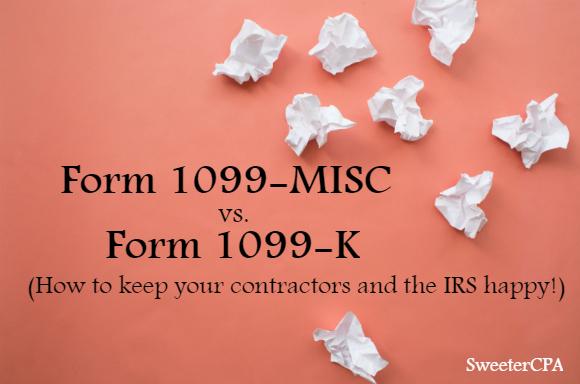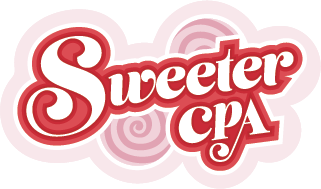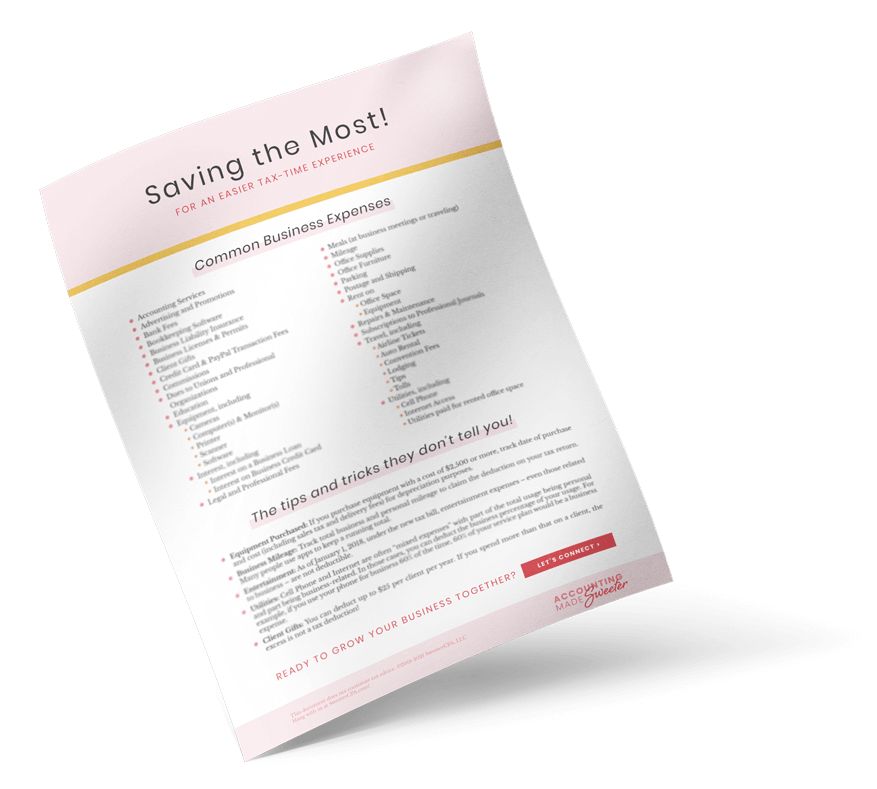If you paid contractors to work for your business in 2016, you may owe them a Form 1099-MISC by January 31, 2017. However, payments made via credit card or PayPal are covered via Forms 1099-K issued by those payment settlement entities. To keep your contractors happy, you want to make sure their payments aren’t reported on two forms (and to keep the IRS happy, you want to make sure contractor payments are reported on the proper form)!

Forms 1099-MISC
What Are They?
These forms are used to report miscellaneous income (basically, income not reported on other forms!) for payments made in the course of trade or business. If you pay someone else to perform services for your business, you may be require to report them with a Form 1099-MISC.
Who Issues Them?
Business owners who hire contractors or outside service providers to perform work for the business issue Forms 1099-MISC to those contractors UNLESS they pay them via credit card or PayPal. If you paid your contractors via credit card or PayPal, those entities will report the income on a Form 1099-K discussed below.
In short, you are required to issue Forms 1099-MISC if you paid a contractor via cash, check, or a bank’s quick-transfer system (e.g., Chase QuickPay).
Who Gets Them?
For business owners, Forms 1099-MISC are most commonly used to report the following payments:
- $10 or more in royalties paid in one year
- $600 or more in payments to nonemployees and/or contractors
- $600 or more in rents, prizes, or other income paid in one year
Forms 1099-MISC are used to report these types of payments to the individuals or businesses who received the payments. In other words, if you paid a contractor $1,000 to work for your business in 2016, you owe them a Form 1099-MISC.
See more FAQ here (including whether you owe Forms 1099-MISC to foreigners or corporations).
When Are They Due?
For the 2016 tax year, Forms 1099-MISC reporting non-employee compensation (i.e., money paid to contractors or outside service providers) are required to be filed by January 31, 2017. As this is the most-common reason business owners file Forms 1099-MISC, this is an important due date.
For all other income reported on a Form 1099-MISC, the forms must be filed by February 28, 2017, if you file by paper or March 31, 2017, if you e-file.
Forms 1099-K
What Are They?
Forms 1099-K report payments a business receives via entities called “Payment Settlement Entities” (or “PSEs”).
Who Issues Them?
PSEs issue Forms 1099-K. The most-common PSEs are:
- Payment Card Processors (e.g., credit and debit cards)
- Third Party Settlement Organizations (e.g., PayPal)
Who Gets Them?
Any business that
- accepts credit or debit cards, or
- uses a third party settlement organization if gross payments exceed $20,000 and there are more than 200 transactions in a calendar year.
A business will get a Form 1099-K from each PSE. This means if the business accepts MasterCard and PayPal, it will get a 1099-K from both MasterCard and PayPal assuming it meets the thresholds outlined above (i.e., $20,000 and 200 transactions for PayPal to issue a Form 1099-K).
When Are They Due?
Forms 1099-K must be issued to the recipient by January 31, 2017. The forms are due to the IRS by February 28, 2017, if filed on paper or April 1, 2017 if e-filed.
Summary
If you paid your contractors more than $600 in 2016, take a look at how you paid them:
- Cash, check, bank quick-transfer system = YOU issue them a Form 1099-MISC.
- Credit card, debit card, PayPal = THE PAYMENT PROCESSOR issues them a Form 1099-K.



